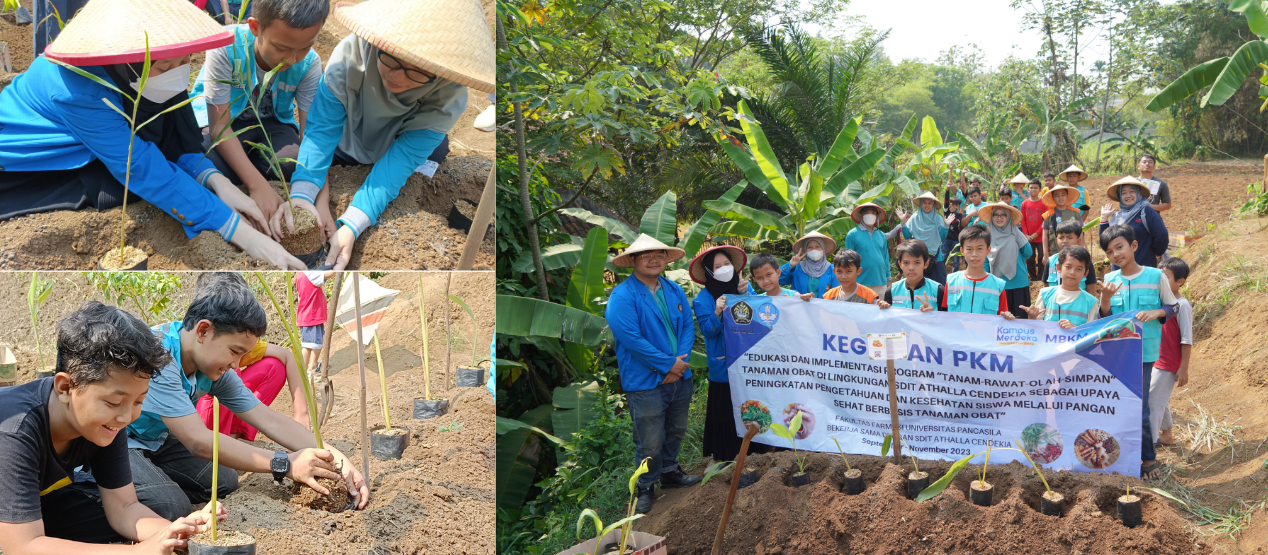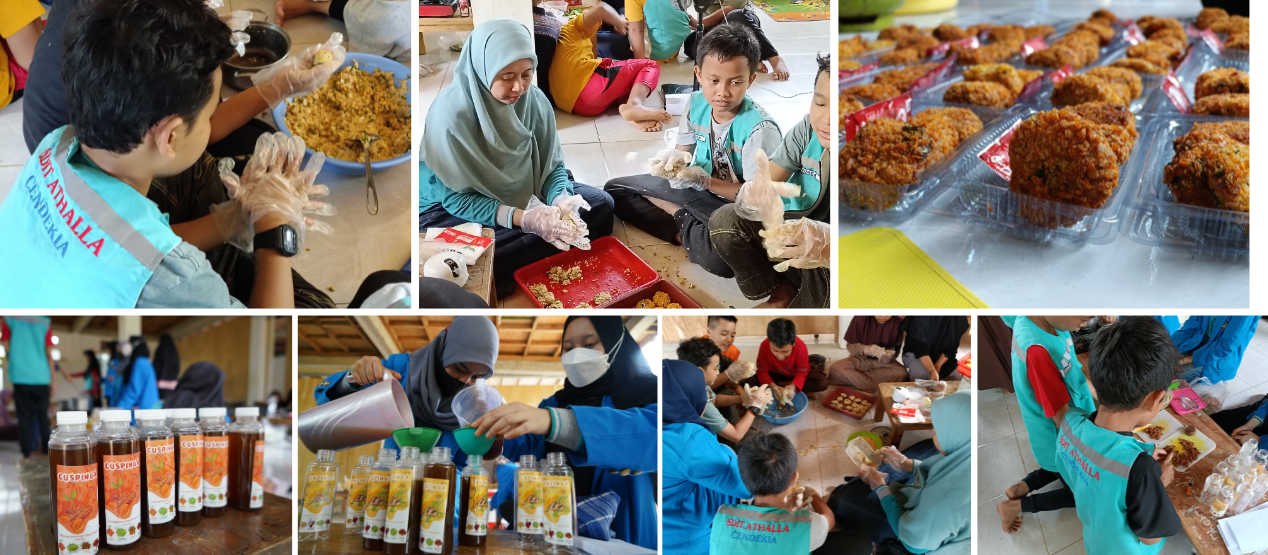The Faculty of Pharmacy of Pancasila University (FFUP) through the Community Partnership Empowerment Program (PKM) provides early education to elementary school children by introducing and providing an understanding of medicinal plants and their benefits as raw materials for making healthier alternative snacks.
This program is supported by the Ministry of Education and Culture of the Republic of Indonesia which provides funding to lecturers to carry out the Tridharma of Higher Education held at SDIT Athalla Cendekia, Bogor Regency, West Java on Saturday (14/10).
As the Head of the Activity is Esti Mulatsari– involving Supervising Lecturers: Diah Kartika Pratami, Intan Permata Sari, Esti Mumpuni, and Agus Purwanggana.
Also invited eight final year students as an implementation of the Merdeka Learning Campus Merdeka (MBKM) program. In accordance with the program launched by the Minister of Education and Culture, the implementation of this activity also aims to encourage students to master various sciences as preparation for entering the world of work.
Menanam TOGA di Kebun Sekolah
Tanaman Obat Keluarga (TOGA) merupakan tanaman berkhasiat yang ditanam di laha pekarangan maupun ladang dan dikelola oleh keluarga. Biasanya, jenis TOGA meliputi tanaman untuk dijadikan ramuan obat tradisional yang mudah pengolahannya. Sebagai negara megabiodiversitas dengan berbagai macam jenis tumbuhan obat.
Planting TOGA in the School Garden
Family Medicinal Plants (TOGA) are nutritious plants grown in yards and fields and managed by families. Usually, TOGA types include plants to be used as traditional medicinal herbs that are easy to process. As a megabiodiversity country with various types of medicinal plants.
The use of TOGA in Indonesia generally takes place from generation to generation, resulting in the creation of various medicinal plant concoctions that constitute traditional medicine.
Along with the development of knowledge, the use of medicinal plants is not limited to traditional medicine but is processed in the form of foods such as aloe vera pudding, fresh drinks, candy and ice cream made from herbs and other foods that can be attractively packaged to be an alternative snack for children.
FFUP partnered with SDIT Athalla Cendekia, a nature-based school in Bogor Regency, West Java. As a nature school, SDIT Athalla Cendekia has a comprehensive curriculum ranging from teaching nature-based science, developing life skills and entrepreneurial skills. The collaboration between FFUP is in accordance with the expertise of the lecturers involved in the field of food chemistry and natural ingredients.
Activities were held in the form of planting TOGA (turmeric, temulawak, red ginger and lime) in the school environment as an effort to improve plant care skills and exploration of plant growth. Then, training was held on food processing made from TOGA, making packaging, storage methods and sales strategies.
Training in Making Herbs from TOGA
This TOGA planting and processing activity received high enthusiasm from the students. They carried out the activity of planting and processing TOGA with great enthusiasm.
Food and beverage processing activities from TOGA aim to educate early on that this material is not only limited to traditional medicine but can also be processed in the form of healthy snacks.
In addition, elementary school students were taught to make tempeh nuggets and three types of herbal drinks. With the implementation of this PKM, students’ knowledge about planting medicinal plants and processing medicinal plants as raw materials for food and drinks for healthier alternative foods was increased.

